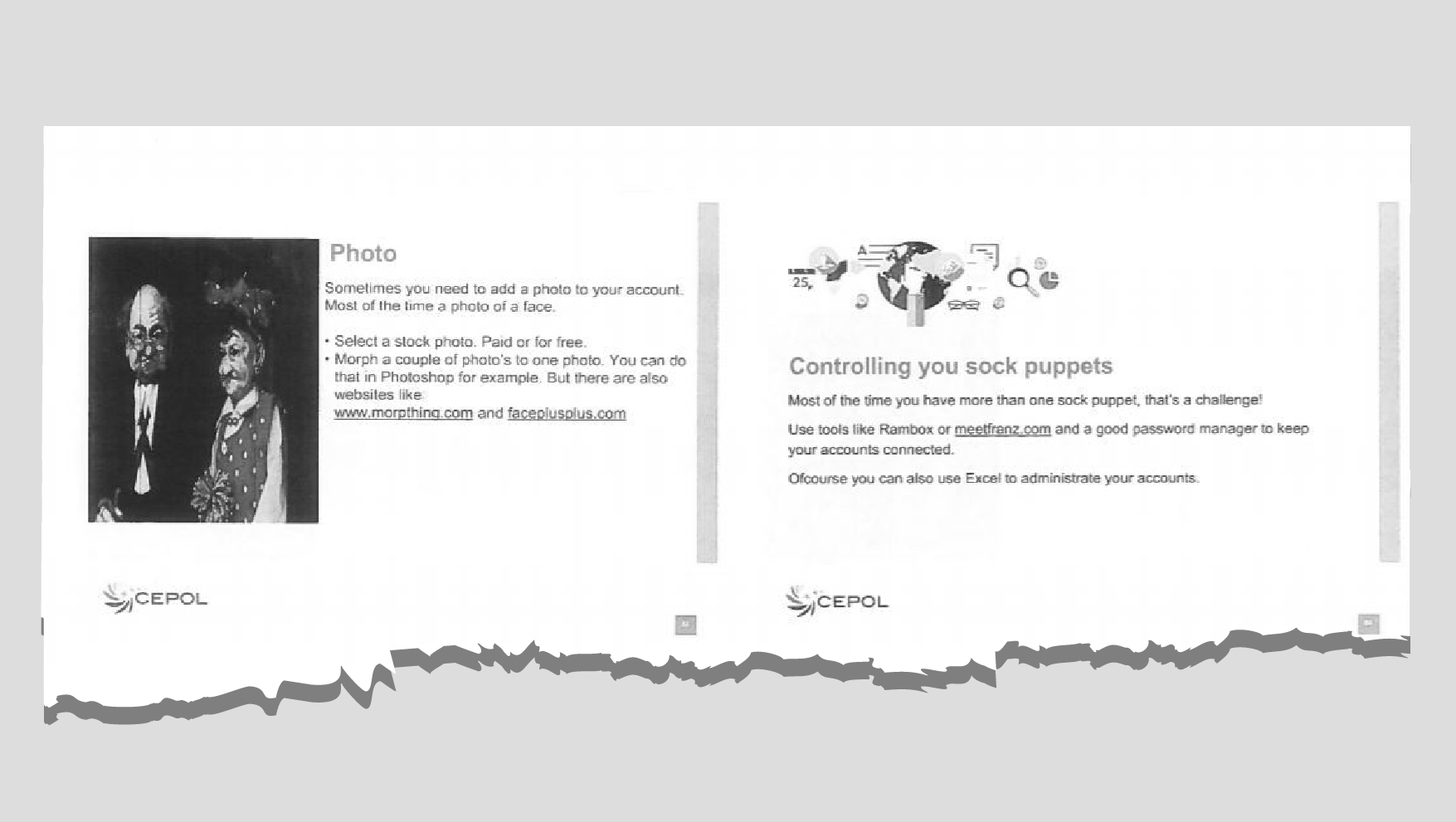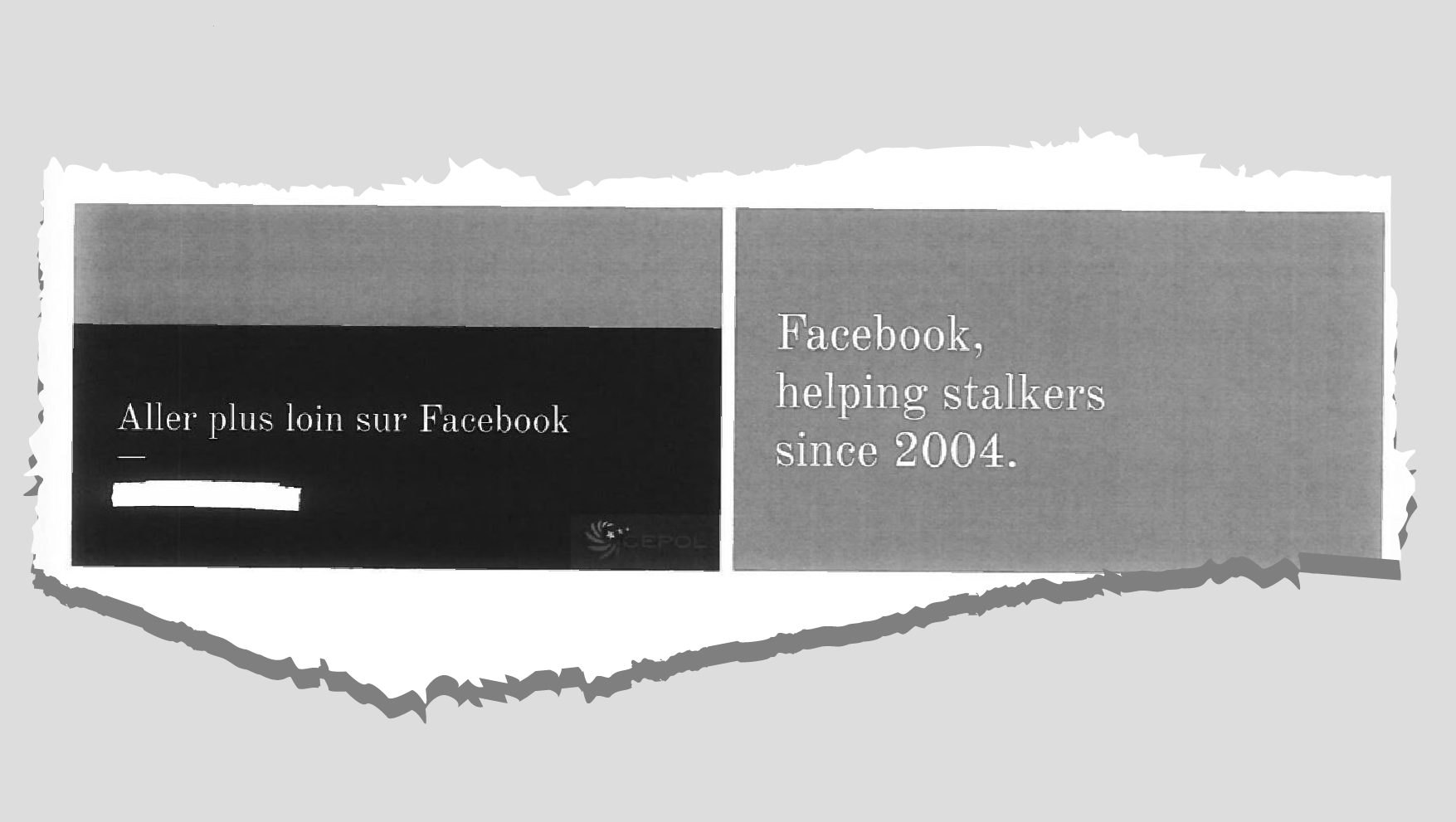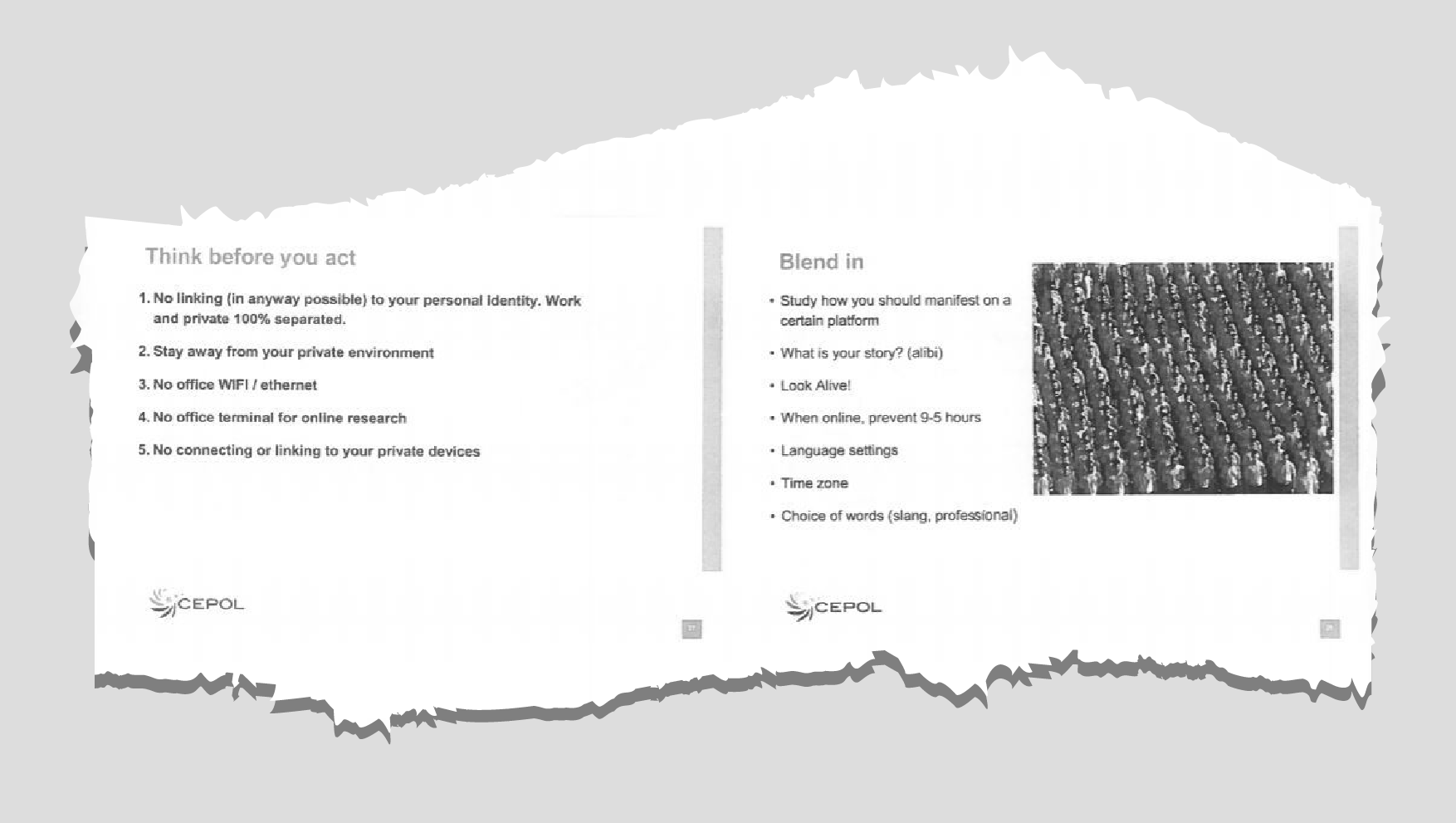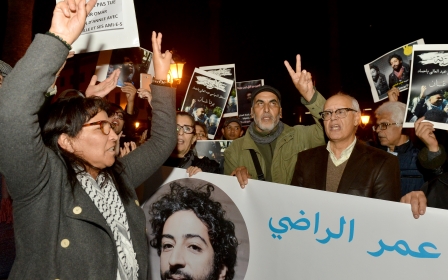EU trained Algeria and Morocco police in online disinformation tactics

The European Union is training police and security forces in North African countries in surveillance techniques including harvesting data from social media sites and mobile phones.
EU trainers also taught Algerian police officers to create fake online identities, which have been linked to the spread of disinformation and government propaganda in the country, as part of a course on open source intelligence (OSINT) methods delivered at the height of popular protests last year.
Officers were instructed in creating and maintaining “sock puppet” accounts, from purchasing SIM cards from a local shop to posting outside of office hours, avoiding home and office networks, creating a “story” to blend in online, and using software to run multiple fake identities at the same time.
The April 2019 course in Algiers, titled “OSINT, Darknet and Investigation Techniques”, also trained members of Algeria's National Gendarmerie to use search tools enabling them to trace the location of specific electronic devices via VPN connections and IP addresses.
Stay informed with MEE's newsletters
Sign up to get the latest alerts, insights and analysis, starting with Turkey Unpacked
Similar training was provided by the European Union Agency for Law Enforcement Training (CEPOL) to Morocco's national police force, the General Directorate for National Security, according to documents obtained and published by Privacy International, a data rights charity based in London.
'Helping stalkers'
In Morocco, the training focused on gathering intelligence via Facebook, which the course slides described as “helping stalkers since 2004”.
It also instructed officers to register with Twitter as developers in order to gain enhanced access to data in contravention of the social media platform's own policies, which prohibit developers from sharing information with “any Government End User whose primary function or mission includes conducting surveillance or gathering intelligence”.
Police officers were trained to extract data from seized mobile devices using a programme created by an Israeli surveillance software company including, according to Privacy International research, “content that the phone collects without any user action (and sometimes without user knowledge)”.
CEPOL also provides training courses for police and security forces in Tunisia, Jordan, Lebanon and Turkey through a regional counter-terrorism training programme funded by EU aid money.
Edin Omanovic, advocacy director of Privacy International, told Middle East Eye: “The EU has time and again acknowledged that surveillance poses a huge threat to people around the world.
"It’s ridiculous that EU agencies are secretly promoting the use of techniques which pose serious threats to authorities in countries where we know activists and others are being targeted. This not only risks making the EU complicit in abuses, it undermines its own interests.
"At best it is incredibly naive, at worse it is outright dangerous."
Activists arrested for 'electronic crimes'
The training course in Algeria was delivered to 20 police officers from 21-25 April 2019, just weeks after the country's long-term president Abdelaziz Bouteflika had been forced to step down and amid continuing efforts by authorities to suppress the Hirak movement, which had brought hundreds of thousands of people onto the streets to call for political change.
According to CEPOL, the course is one of four it has delivered in Algeria to 85 officers. In October 2019, an Algerian high-ranking police delegation also visited CEPOL's headquarters in the Hungarian capital Budapest.
Algerians have faced a worsening wave of repression that has seen scores of activists and journalists arrested. Police reports in the court files of some of those arrested reveal that their social media activities had been monitored by a “special brigade on electronic crimes”, according to a Human Rights Watch report last year.
Activists and journalists say their social media accounts have been shut down, and accuse Algerian authorities of flooding social media platforms such as Facebook and Twitter with pro-government propaganda.
Disinformation campaign
In September 2019, Marc Owen Jones, an expert on social media and disinformation in the Middle East, said there was “clear evidence of a disinformation campaign” based on analysis of two trending hashtags in which hundreds of newly created accounts tweeted support for the army and criticism of the Hirak movement.
MEE approached Algerian activists for comment but none were prepared to speak, even anonymously, because of concerns for their own security.
Moroccan authorities have also been accused of using cyber-surveillance to target activists, with Amnesty International highlighting cases of journalists and human rights advocates it said had been monitored using Israeli spyware.
In an open letter to the European Commission, Privacy International and other NGOs said that the EU should be “a promoter of rights, not an enabler of governments to undermine them”, and called for a review of aid programmes funding the training.
“We are concerned that by sponsoring such activities, the EU drives the adoption and use of surveillance technologies that, if abused by local actors, can potentially violate the fundamental rights of people residing in those countries,” they said.
A spokesperson for the European Commssion told MEE that all activities in Algeria were currently suspended because of Covid-19 and travel restrictions.
"The EU has long-standing and regular human rights dialogues with these countries. Human rights are one of the principles on which the EU is based and we are not deviating from these in our contacts with our partners. On the contrary, this issue remains high on our agenda," the spokesperson said.
A spokesperson for CEPOL told MEE that its training promoted “rule-of-law-based investigations” and “respect for fundamental rights”.
“The sharing of good practices and techniques, including those related to digital forensics and social media monitoring, is important to build the capacity of third countries to fight more effectively heinous crimes such as sexual exploitation online; to prevent and combat radicalisation leading to violent extremism and terrorism; or to disrupt organised criminal networks involved in the facilitation of illegal migration, trafficking in human beings or drugs.”
Thsi article is avalaible in French on Middle East Eye French edition.
Middle East Eye delivers independent and unrivalled coverage and analysis of the Middle East, North Africa and beyond. To learn more about republishing this content and the associated fees, please fill out this form. More about MEE can be found here.








